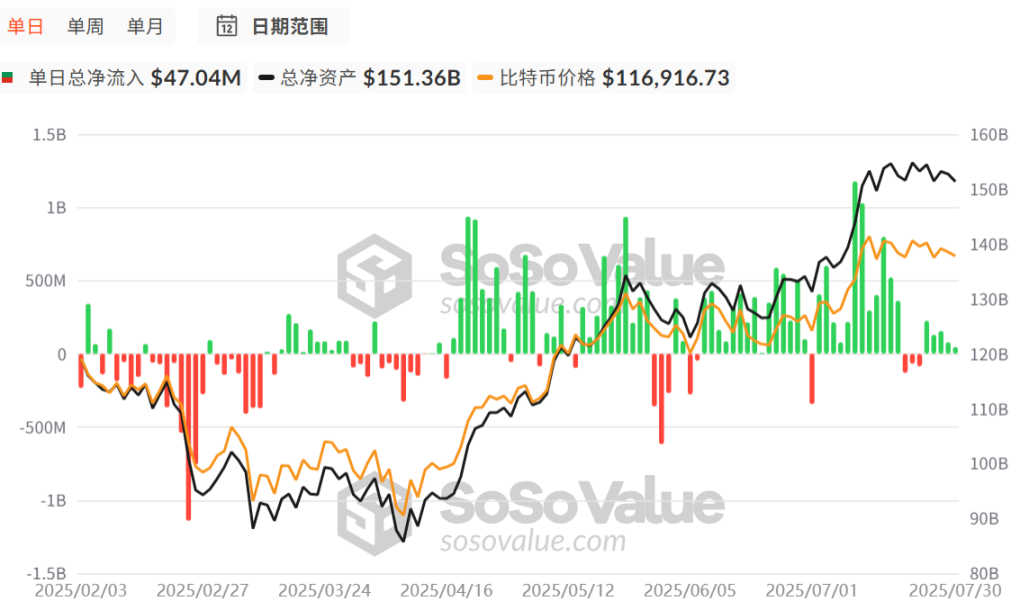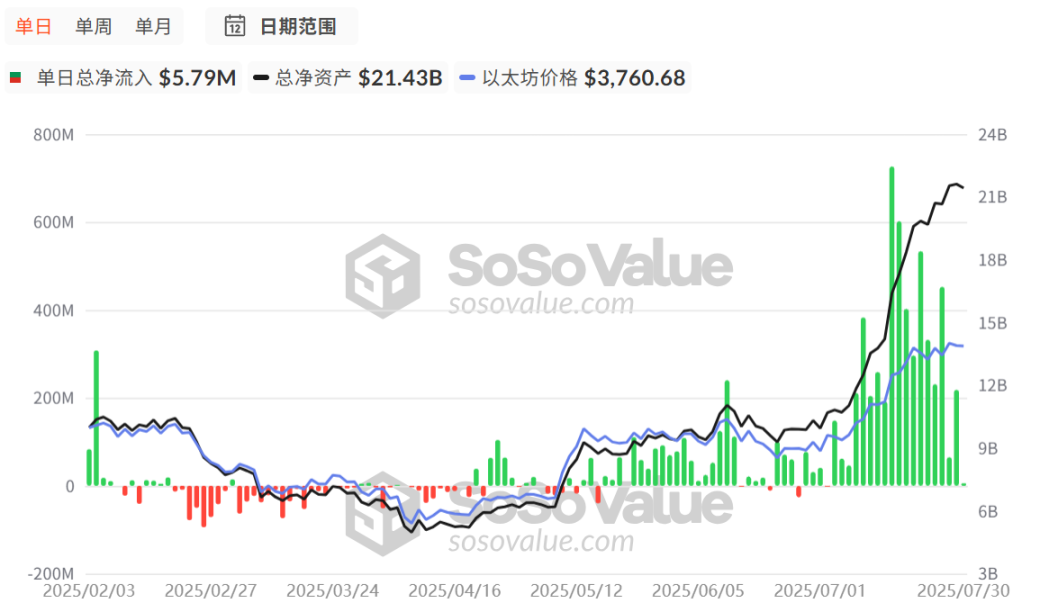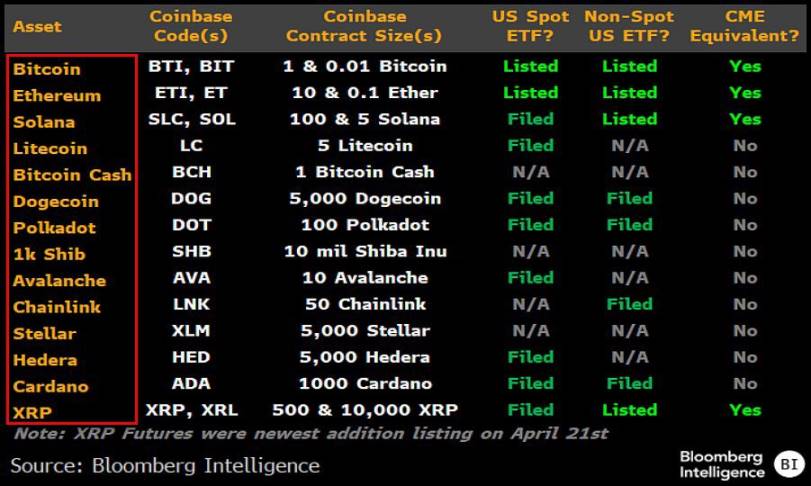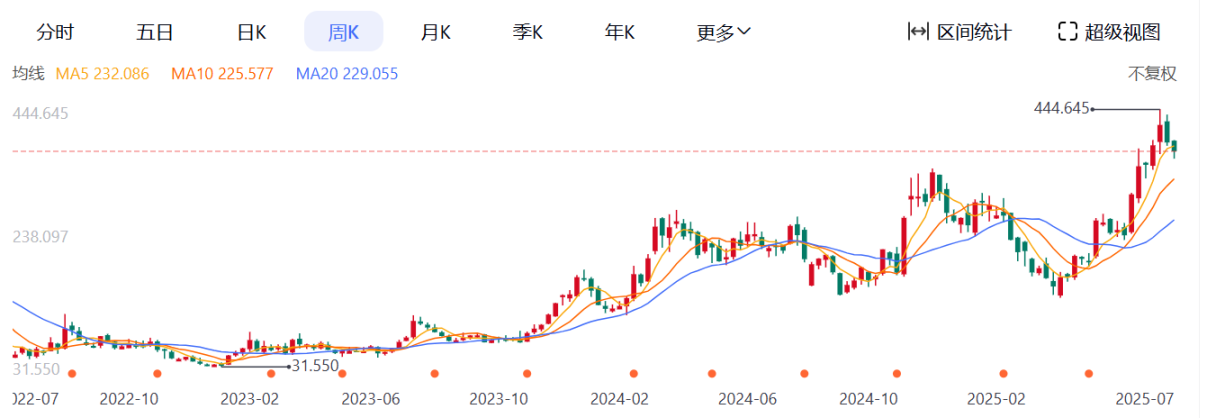SEC's new standards are announced, and the wave of spot ETF approvals is about to be staged?
Written by: 1912212.eth, Foresight News
On July 29, the U.S. Securities and Exchange Commission (SEC) announced the approval of the physical creation and redemption mechanism for crypto asset exchange-traded products (ETPs), a change that mainly used a cash creation and redemption model, significantly reducing transaction costs and improving efficiency. In addition, the U.S. SEC has also announced the listing standards for spot ETFs, and the implementation of the new standards is expected to take effect in September or October 2025, aiming to simplify the listing process of ETFs and open the door to mainstream finance for more crypto assets.

Futures must be listed on major exchanges such as Coinbase for at least 6 months
The SEC's new listing criteria primarily focus on the eligibility requirements and operational mechanisms for crypto ETPs. First, in-kind creations and redemptions are officially allowed, meaning authorized participants can exchange ETP shares for actual crypto assets instead of cash. This model can reduce tax burdens, reduce trading friction, and enhance ETF liquidity. In his statement, the SEC chairman emphasized that this decision aims to provide crypto ETPs with similar treatment to traditional ETFs while maintaining market integrity. Previously, crypto ETPs were forced to use a cash model, leading to higher operational costs and potential manipulation risks.
Additionally, the SEC has established "universal listing standards" that require crypto assets to be listed on futures on major exchanges like Coinbase for at least 6 months. This regulation aims to ensure that assets have sufficient liquidity and market depth to avoid manipulation. According to documents cited by Phyrex, ETFs for tokens without futures or newer altcoins such as meme coins such as Bonk and Trump require a 40 Act.
Which project ETFs may be approved
Bitcoin and Ethereum's spot ETFs, which have already been approved in 2024 and 2025, respectively, will continue to benefit from the optimization of physical mechanisms.

According to SoSoValue data, as of July 31, 2025, the cumulative total net inflow of Bitcoin spot ETFs in the United States has reached $55.11 billion. The US Ethereum spot ETF has achieved a cumulative total net inflow of $9.62 billion, and has grown rapidly after breaking out of the sluggish period. The approval of spot ETFs has undoubtedly had a good effect on supporting the rise in its currency price.

The new standard opens the door for altcoins. Solana (SOL) and Ripple (XRP) are seen as the first beneficiaries. Cboe's proposal explicitly mentions that SOL and XRP ETPs are expected to launch in the fourth quarter of 2025, with an active futures market. XRP's futures contracts were officially launched on Coinbase on April 22 this year, and XRP's cross-border payment applications have also attracted institutional interest. Analysts predict that the approval probability of these ETFs is high, potentially by the end of 2025.

Other potential projects include Chainlink, Polkadot, and Cardano, among others, which meet the time-to-market requirements and are backed by emerging futures contracts. Not all projects can pass the exam, though: DOGE may be excluded due to its lack of futures history unless its market maturity increases. Overall, the new standard is expected to approve 10-15 new ETFs, covering the top 20 crypto assets by market capitalization, driving the industry's transformation from speculation to investment.
Coinbase may be the biggest beneficiary
On May 9, Coinbase Derivatives, a subsidiary of Coinbase, launched the first CFTC-regulated 24/7 trading service for Bitcoin and Ethereum leveraged futures in the United States, covering both retail and institutional users. This marks the first time that the U.S. derivatives market has been trading around the clock, allowing users to hedge risks and capture market opportunities at any time. Coinbase also plans to introduce perpetual contracts, with more compliant derivatives available in the future.
Coinbase, as the largest crypto exchange in the United States, stands to benefit significantly from the SEC's new standards. Firstly, the criteria directly reference Coinbase as an eligibility benchmark: coins traded on the platform for more than 6 months are eligible to apply for ETPs, reinforcing Coinbase's regulatory influence. This means that Coinbase-listed assets are more easily converted into ETF products, attracting more issuers to work with them. For example, Coinbase has acted as custodian for several Bitcoin and Ethereum ETFs, with its custody business revenue growing by 30% in the first quarter of 2025.
Second, the new standard will increase Coinbase's trading volume and revenue. The physical redemption mechanism requires ETF issuers to hold actual crypto assets, which will drive institutional block trading through Coinbase. Bloomberg analysts estimate that this could generate an additional $1 billion in fee revenue per year for Coinbase. Additionally, as more ETFs are approved, retail investors will turn to Coinbase to purchase the underlying assets, creating a positive feedback loop.

On February 21 this year, the U.S. SEC withdrew its lawsuit against Coinbase without any fines. In terms of policy, Coinbase has no major obstacles. The new standard elevates Coinbase's legitimacy, shifting it from a regulatory adversary to a partner.
The CFTC's approval power for spot ETFs may be preempted
The CFTC, as a commodity regulator, plays an increasingly important role in the spot ETF space. Crypto assets like Bitcoin are considered commodities, so the regulation of spot ETFs involves the SEC's coordination with the CFTC. In 2025, the White House policy report called for increased cooperation between the two, including the establishment of a "safe harbor" mechanism to avoid regulatory overlap. The CFTC's leadership vacuum (chairmanship vacancy) has led to delays in decision-making, but it also presents an opportunity for the crypto industry: the CFTC favors a looser commodity framework, potentially accelerating derivatives innovation for spot ETFs. If the CFTC further treats more crypto as a commodity, spot ETF approvals will be quicker, reducing the SEC's securities review burden.
Twitter KOL qianbafrank commented that the new listing standards of the U.S. SEC mean that "the SEC's approval authority for crypto asset spot ETFs has been transferred to the CFCT (Commodity and Futures Commission), because the CFCT is the main decision-making regulator for which assets can own futures contracts."
However, the CFTC's influence also poses challenges: if crypto futures market manipulation events increase, the CFTC may intensify scrutiny, indirectly dragging down spot ETFs. The report reveals that the CFTC has handled several crypto fraud cases in 2025, which could require ETF issuers to adhere to stricter reporting standards.
